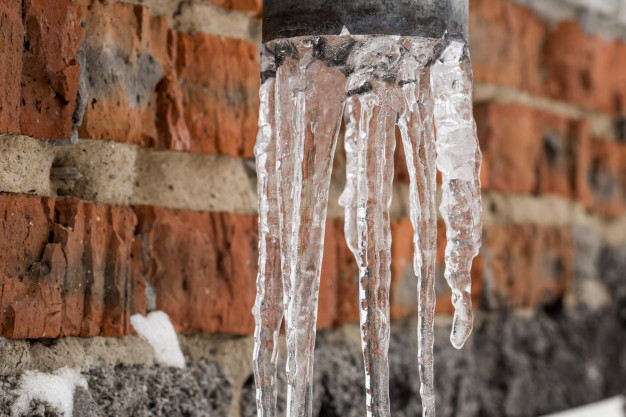Having Frozen Pipes can be a hassle for any homeowner. This comes usually during the wintertime or when the temperature is dropping. With frozen pipes, it can cost you almost thousands in money for water damage. Also, it can cause other damages like burst pipes, which is one of the most common causes of property damage.
The pipes that are most at risk with frozen are located in unheated spaces like basements, attics, and garages. If you want to stop your frozen pipes from causing damage to your home, there are ways to do it to make sure you have running water and your house is dry.
Why Do My Pipes Burst When Frozen?
Everyone who has frozen pipes that burst pipes are thinking about why this is happening. We can answer that question for you
When the water is frozen, the volume expands about 10% more. It also expands with force. The pressure also increases a lot where the pipe can’t hold that much pressure. This causes the pipes to burst open. The pipe usually bursts because of the water pressure, but it can also be when the ice forms.
If you want to stop this, there are ways to make sure your pipes are running smoothly during the winter times.
What Can I Do to Prevent Frozen Pipes?
There are many ways to prevent frozen pipes. Here are tips that we recommend you do to prevent your pipes from being frozen.
Turn Up The Heat
Turning up the heat is important because it can prevent pipes from freezing. Try to keep the heat to the normal. It doesn’t have to be higher than you would put it. The best temperature to keep at it is above 10 Celsius or higher. With this heat, it would keep your water from freezing and also keep you warm during the cold times.
If you are going to leave the house during the winter for vacation, it is better to turn the heat on in your home 24/7.
Keep Your Garage Closed
Keeping the garage closed is very important because sometimes the water supply line can go through the garage, which most often. Your garage will be cold when even closed because of smooth concrete. If you open the garage, you are letting more cold air in, which will drop the temperature by a lot. With leaving the garage open, it is more likely that the water supply line can freeze. Try to make sure you close the garage when you are not using it.
Let Faucets Drip
One way to make sure your pipes are to make sure your faucets have water dripping. You don’t have to turn all of them on.
The first thing you need to do is check which faucets in your home are being used by the exposed pipe. Once you find out which ones are being used by the exposed pipe, turn those on especially for extremely cold weather. With the water running, it can carry more internal energy than standing water. This friction is done by constant movement and creates a little bit of heat. This friction is harder to freeze than standing water. With running your water, the movement will make sure that your pipes will not get ice blockages to form in your pipes.
Pressure won’t be build-up, so your pipe won’t burst even with the water inside the pipe being frozen. If you have your hot and cold lines exposed, then use run hot and cold water from your faucets, so the pressure won’t build up.
Seal Cracks and Openings
With cracks and holes shows outside your pipe because of the burst pipes that happened. Cold air can go through the cracks and holes causing to freeze even more. The best way to stop this from happening is to seal the cracks and openings. You can use calk or spray foam insulation to fill the gaps. Also, if possible, try to do it for the interior and exterior side of the wall or floor. Make sure to check the windows and door frame in case cold air enters from the outside. Also, there can be cable holes like for your television, wifi and more.
Heating Tape
Using heating tape like an electric blanket for the pipes. It helps with the pipes regaining heat. This is very helpful when there are pipes in unheated parts of your home or business like basements or attics.
There are two types of heating tape you can use, which are manual and self-monitoring. For manual heating tape, you have to plug it in whenever heat it needed and unplug when the heat is warm. For self-monitoring heating tape, it has a sensor where it can turn on and off by itself when senses that the pipe needs more heat or not.
These products can be dangerous, so make sure to read the manufacturer’s instructions and procedures.
Let Us Fix Your Frozen Pipes
The tips we have written will help you a lot when you come face to face with frozen pipes and burst pipes. Contact us today and we will conduct frozen pipe repairs for your home or office as soon as possible.
